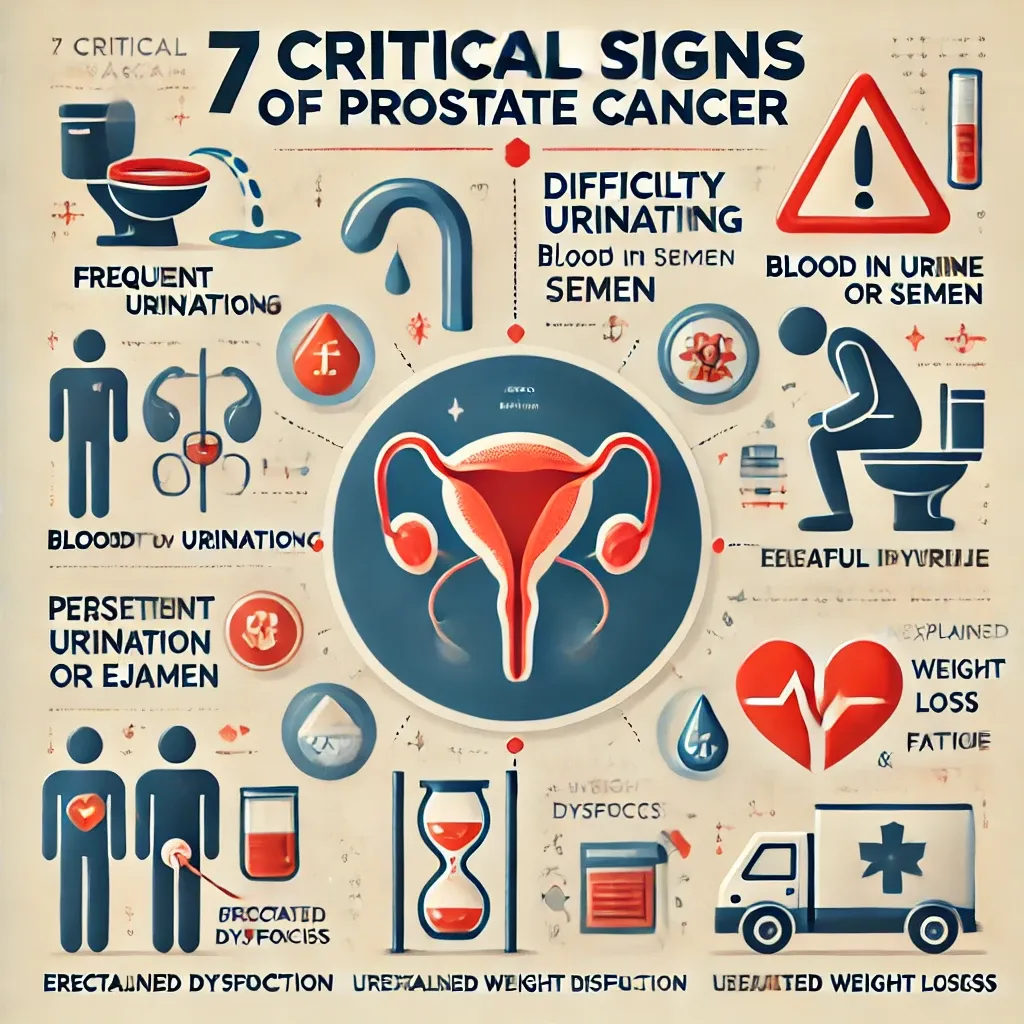7 Critical Signs of Prostate Cancer You Need to Write Down
Prostate cancer is one of the most common cancers affecting men worldwide. Early detection significantly increases the chances of successful treatment, but many men overlook its warning signs, mistaking them for minor issues. Below are seven critical signs of prostate cancer that you should take note of and discuss with your doctor if they occur.

1. Frequent Urination, Especially at Night
Waking up multiple times during the night to urinate could indicate a problem with the prostate gland. Since the prostate surrounds the urethra, an enlarged prostate can press against it, leading to frequent trips to the bathroom, particularly at night.
2. Difficulty Starting or Stopping Urine Flow
Trouble starting urination, a weak or interrupted stream, or difficulty stopping can be signs of prostate issues. This symptom occurs when the prostate interferes with the urethra’s normal function, potentially signaling an underlying problem.
3. Blood in Urine or Semen
The appearance of blood in your urine or semen is a serious warning sign. While it may not always indicate prostate cancer, it is often linked to advanced prostate problems and requires immediate medical attention.
4. Painful Urination or Ejaculation
Pain during urination or ejaculation is another symptom that may indicate inflammation or other issues in the prostate gland. Although it isn’t always cancer-related, this symptom should never be ignored.
5. Persistent Pain in the Lower Back, Hips, or Pelvis
Prostate cancer can spread to nearby areas, including the lower back, hips, or pelvis. Persistent pain in these regions could be a sign of advanced cancer. Don’t dismiss this discomfort as ordinary soreness or strain—consult your doctor if it persists.
6. Erectile Dysfunction (ED)
Erectile dysfunction has many causes, but it can sometimes be linked to prostate cancer. If ED appears alongside other urinary or prostate-related symptoms, it’s essential to seek a medical evaluation.
7. Unexplained Weight Loss and Fatigue
Like other cancers, prostate cancer can cause unexplained weight loss and chronic fatigue, especially in advanced stages. These symptoms often indicate that cancer may have spread, underscoring the importance of early medical intervention.
Take Action: Early Detection Saves Lives
If you notice any of these symptoms, don’t wait for them to resolve on their own. Early detection is the key to successfully managing prostate cancer. Take these proactive steps to safeguard your health:
- Schedule Regular Screenings: Routine prostate-specific antigen (PSA) blood tests and digital rectal exams (DRE) can help detect prostate cancer early, even before symptoms appear.
- Maintain Open Communication: Discuss any symptoms or concerns with your healthcare provider without delay.
- Adopt a Healthy Lifestyle: Eating a balanced diet, exercising regularly, and avoiding smoking can improve overall prostate health and reduce your risk of cancer.

